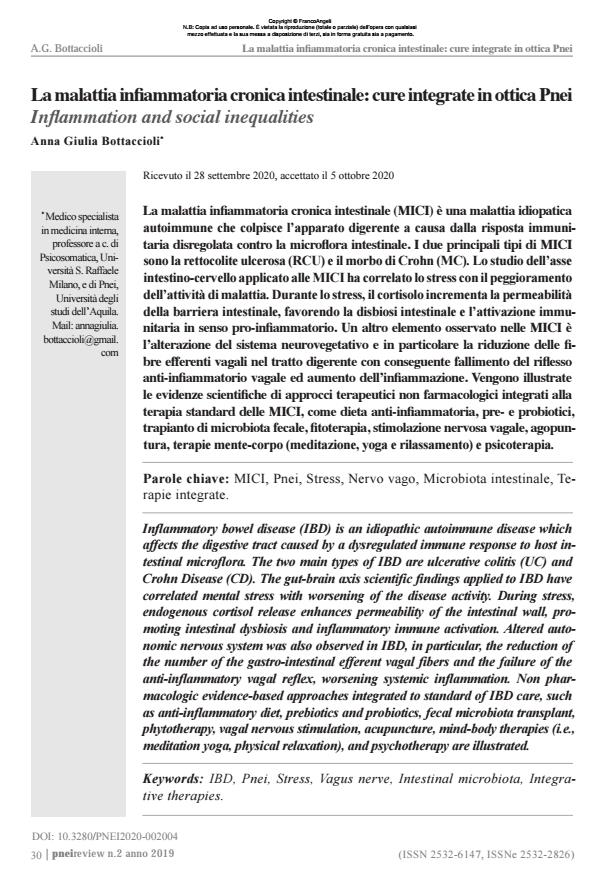Inflammation and social inequalities
Journal title PNEI REVIEW
Author/s Anna Giulia Bottaccioli
Publishing Year 2020 Issue 2020/2
Language Italian Pages 11 P. 30-40 File size 194 KB
DOI 10.3280/PNEI2020-002004
DOI is like a bar code for intellectual property: to have more infomation
click here
Below, you can see the article first page
If you want to buy this article in PDF format, you can do it, following the instructions to buy download credits

FrancoAngeli is member of Publishers International Linking Association, Inc (PILA), a not-for-profit association which run the CrossRef service enabling links to and from online scholarly content.
Bowel disease (IBD) is an idiopathic autoimmune disease which affects the digestive tract caused by a dysregulated immune response to host intestinal microflora. The two main types of IBD are ulcerative colitis (UC) and Crohn Disease (CD). The gut-brain axis scientific findings applied to IBD have correlated mental stress with worsening of the disease activity. During stress, endogenous cortisol release enhances permeability of the intestinal wall, promoting intestinal dysbiosis and inflammatory immune activation. Altered autonomic nervous system was also observed in IBD, in particular, the reduction of the number of the gastro-intestinal efferent vagal fibers and the failure of the anti-inflammatory vagal reflex, worsening systemic inflammation. Non pharmacologic evidence-based approaches integrated to standard of IBD care, such as anti-inflammatory diet, prebiotics and probiotics, fecal microbiota transplant, phytotherapy, vagal nervous stimulation, acupuncture, mind-body therapies (i.e., meditation yoga, physical relaxation), and psychotherapy are illustrated.
Keywords: IBD, Pnei, Stress, Vagus nerve, Intestinal microbiota, Integrative therapies.
Anna Giulia Bottaccioli, La malattia infiammatoria cronica intestinale: cure integrate in ottica Pnei in "PNEI REVIEW" 2/2020, pp 30-40, DOI: 10.3280/PNEI2020-002004